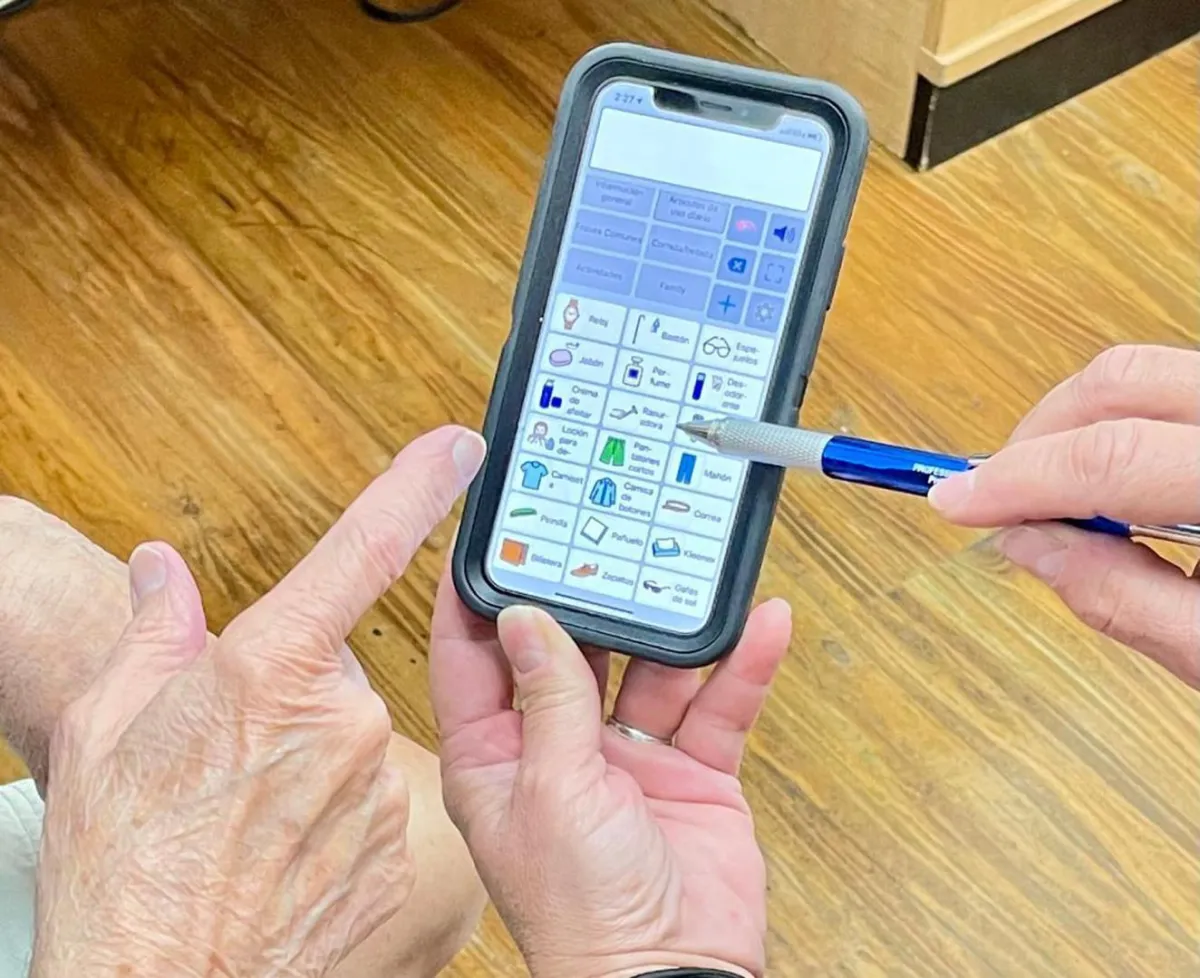We have been Business Since 1996

Unlocking the Power of Speech Therapy
Enhancing Communication Skills and
Improving Quality of Life
Speech therapy is here to help patients with Speech problems. Whether it is congenital or caused by a traumatic injury Communication is essential for human connection, but for some individuals, challenges in speech and language make communication a struggle. That's where the power of speech therapy comes in. Whether it's a child with a speech delay, an adult recovering from a stroke, or someone with a communication disorder, speech therapy can unlock the potential for improved communication skills and a better quality of life. Speech therapy uses evidence-based techniques to address specific speech and language issues. Through a combination of exercises, activities, and personalized therapy plans, speech therapists work with individuals to develop and strengthen their communication abilities. Techniques may include articulation exercises, language stimulation, pragmatic skills training, and augmentative and alternative communication methods. By improving speech and language skills, speech therapy can have a profound impact on various aspects of life. It can enhance social interactions, boost self-confidence, improve academic performance, and help individuals thrive in their personal and professional lives. Unlock the power of speech therapy and discover the transformative effects it can have on communication skills and overall well-being.

What is Speech Therapy?
Speech therapy, also known as speech-language pathology, is a specialized field that focuses on evaluating and treating individuals with speech and language disorders. It involves working with a speech therapist who is trained to address specific speech and language issues through a variety of techniques and interventions. Speech therapists use a combination of exercises, activities, and therapy plans tailored to each individual's needs. These techniques may include articulation exercises to improve speech clarity, language stimulation to enhance vocabulary and grammar skills, pragmatic skills training to improve social interactions, and the use of augmentative and alternative communication methods for individuals who have difficulty with verbal communication.
The Importance of Communication Skills
Effective communication skills are crucial for various aspects of life. They play a vital role in social interactions, academic success, and professional development. For children, developing strong communication skills at an early age is essential for their educational journey and future relationships. For adults, communication skills are essential in the workplace, where effective communication can lead to better collaboration, increased productivity, and career advancement. Communication skills also contribute to our overall well-being. Being able to express ourselves and understand others promotes a sense of belonging and self-confidence. Conversely, difficulties in communication can lead to frustration, isolation, and low self-esteem. That's why addressing speech and language challenges through speech therapy is so important.
Common Speech and Language Disorders
Speech and language disorders can manifest in various ways and affect individuals of all ages. Some common speech disorders include articulation disorders, phonological disorders, and fluency disorders. Articulation disorders involve difficulties in producing specific speech sounds, while phonological disorders involve difficulties in organizing speech sounds. Fluency disorders, such as stuttering, involve disruptions in the flow of speech. Language disorders, on the other hand, involve difficulties in understanding and using language. These can include expressive language disorders, receptive language disorders, and pragmatic language disorders. Expressive language disorders involve difficulties in using language to express thoughts and ideas, while receptive language disorders involve difficulties in understanding language. Pragmatic language disorders involve difficulties in using language appropriately in social contexts.
Speech Therapy Techniques and Interventions
Speech therapy utilizes a range of techniques and interventions to address speech and language disorders. These techniques are tailored to the specific needs of each individual and are based on evidence-based practices. Articulation exercises are commonly used to improve speech clarity. These exercises target specific speech sounds and help individuals learn how to produce them correctly. Language stimulation techniques focus on expanding vocabulary, improving grammar skills, and enhancing language comprehension. This can be done through activities such as storytelling, role-playing, and word games. Pragmatic skills training aims to improve social interactions and communication in various contexts. This may involve teaching individuals how to initiate and maintain conversations, interpret nonverbal cues, and understand social norms. Augmentative and alternative communication methods, such as sign language or the use of communication devices, are also utilized for individuals who have difficulty with verbal communication.
Speech Therapy for Children
Speech therapy is particularly beneficial for children, as it can address speech and language challenges at an early age. Early intervention is key in helping children develop strong communication skills and overcome speech and language disorders.For children with speech delays or disorders, speech therapy can make a significant difference in their ability to communicate effectively. It can help improve their articulation, expand their vocabulary, enhance their grammar skills, and boost their confidence in social interactions. Speech therapy for children often involves a combination of individual therapy sessions, group activities, and home exercises to reinforce learning.
Speech Therapy for Adults
Speech therapy is not limited to children; it is also highly effective for adults who may have experienced communication difficulties due to various factors. For example, individuals who have had a stroke or traumatic brain injury may benefit from speech therapy to regain their communication skills. Adults with speech and language disorders, such as stuttering or voice disorders, can also benefit from therapy to improve their speech fluency and vocal quality. Adults who work in professions that require strong communication skills, such as teaching or public speaking, can also benefit from speech therapy. Therapy sessions can help individuals refine their communication techniques, enhance their public speaking skills, and overcome any speech-related challenges that may hinder their professional growth.
Benefits of Speech Therapy
The benefits of speech therapy extend far beyond improved communication skills. Speech therapy can have a profound impact on various aspects of life, enhancing both personal and professional well-being. Improved communication skills lead to more meaningful social interactions, allowing individuals to connect with others on a deeper level. This can lead to increased self-confidence and a greater sense of belonging. In educational settings, speech therapy can improve academic performance by enhancing language skills, facilitating reading and writing abilities, and promoting effective classroom participation. In the workplace, strong communication skills are highly valued and can lead to better collaboration, increased productivity, and career advancement. Individuals who have undergone speech therapy often report improved job satisfaction and greater opportunities for professional growth.
Finding a Speech Therapist
If you or someone you know could benefit from speech therapy, finding a qualified speech therapist is crucial. Start by consulting with your primary healthcare provider, who can provide recommendations and referrals. You can also reach out to local hospitals, clinics, and educational institutions that offer speech therapy services. When choosing a speech therapist, consider their qualifications, experience, and areas of specialization. It's important to find someone who has experience working with individuals with similar speech and language challenges. Additionally, ensure that the speech therapist has a clear understanding of your goals and expectations for therapy.
Speech Therapy Resources and Tools
In addition to working with a speech therapist, there are also resources and tools available to support speech therapy at home or in educational settings. These resources can help individuals practice and reinforce the skills learned during therapy sessions. Speech therapy apps and online platforms provide interactive exercises and activities that target specific speech and language skills. These tools can be accessed on smartphones, tablets, or computers, making them convenient and easily accessible. Additionally, there are books, workbooks, and flashcards available that focus on different aspects of speech and language development.
In Conclusion
Communication is a fundamental aspect of human connection, and speech therapy plays a vital role in enhancing communication skills and improving quality of life. Whether it's a child with a speech delay, an adult recovering from a stroke, or someone with a communication disorder, speech therapy offers effective techniques and interventions to address specific speech and language challenges. By improving speech and language skills, speech therapy has the power to transform various aspects of life. It enhances social interactions, boosts self-confidence, improves academic performance, and helps individuals thrive in their personal and professional lives. So, if you or someone you know is facing difficulties in communication, consider unlocking the power of speech therapy and discover the transformative effects it can have on communication skills and overall well-being.
Quick Links
Contact Us
(561) 964-2526
rehabcentercare22@gmail.com
3618 Lantana Rd, Suite 202
Lake Worth, FL 33462
